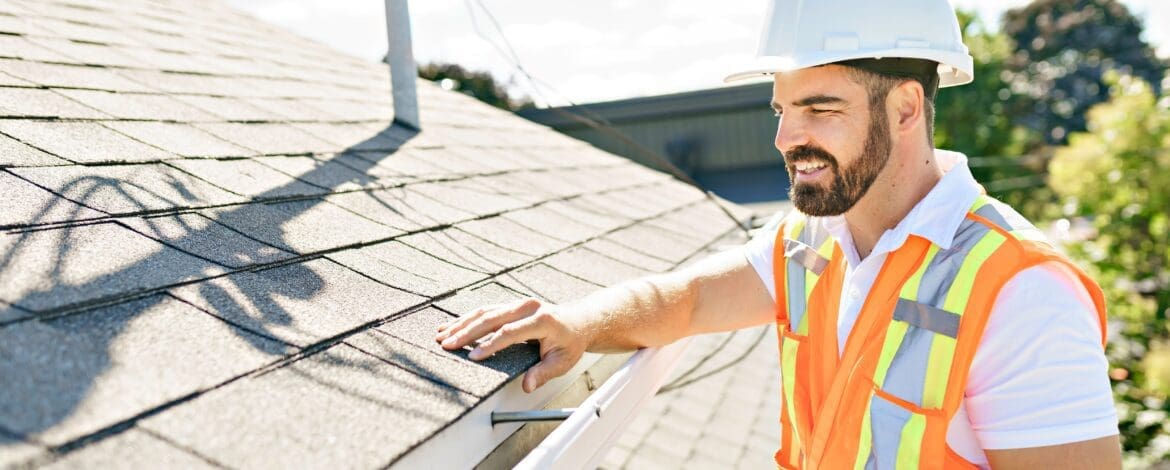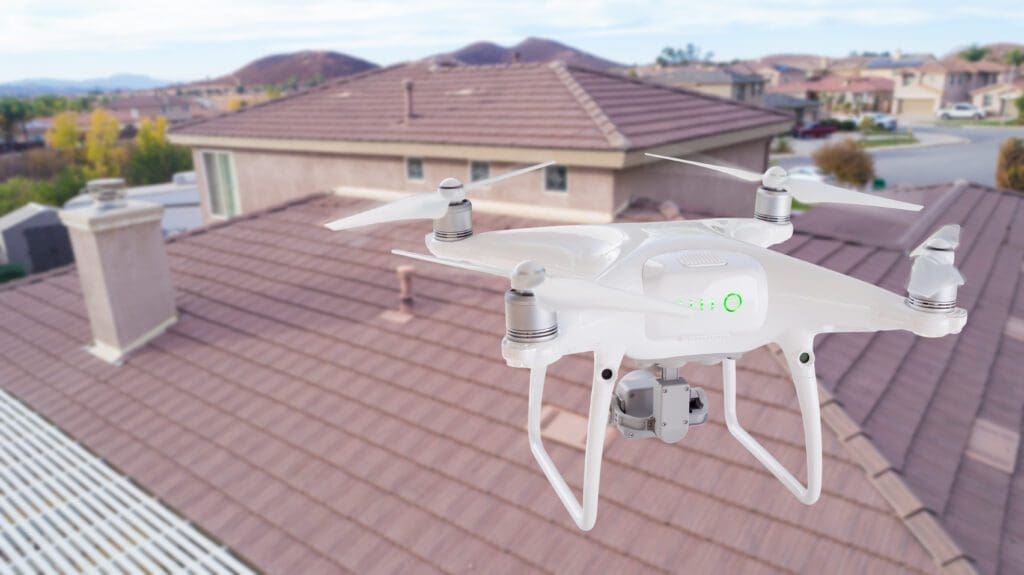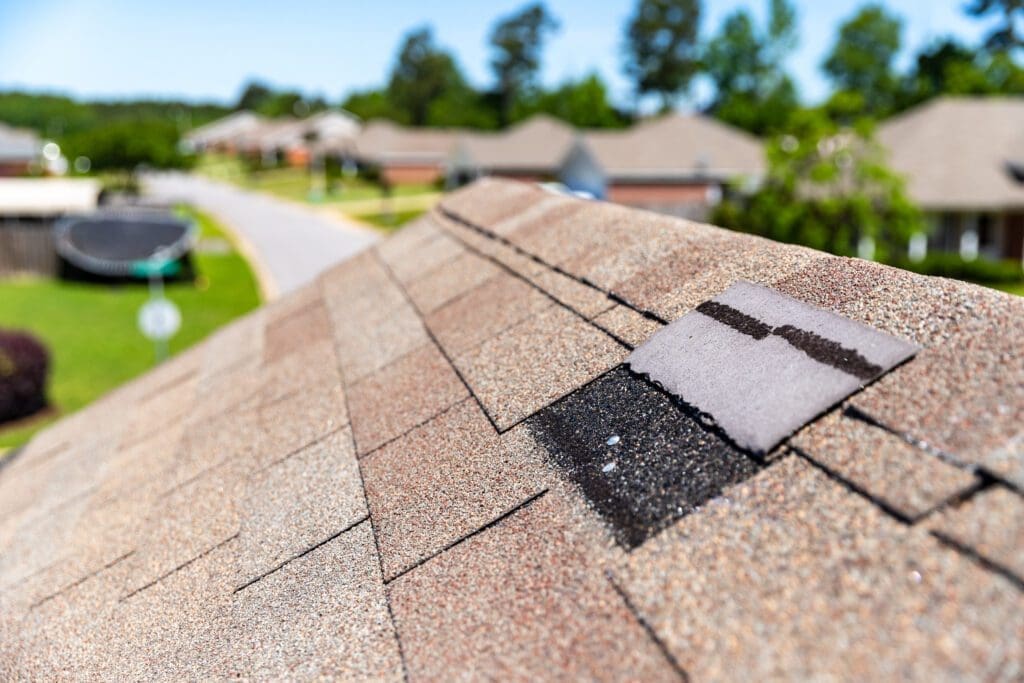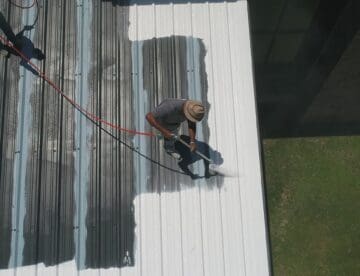If you’re lucky you’ll never need to file a claim with your homeowner’s insurance agency. But sometimes your number comes up and your home sustains some damage. At those times, it’s a good idea to know what the claims process entails. It’s usually pretty straightforward, but sometimes what you think is a standard claim will be denied. At that point, you still have options. Let’s take a look at the roof insurance claims process and how that all can go.
Where to Start With Your Roof Insurance Claims Process
Most roof insurance claims will result from storm damage. Here in Florida we see high winds, heavy rains, hail, and, of course, hurricanes. All of these weather events can cause substantial damage to your home’s roof, whether or not the roof appears to be destroyed. The only way to know for sure is to call your agent and arrange for the insurance adjuster to come out to evaluate your roof damage.
When the adjuster is on site, they’ll perform an inspection and determine if the roof is damaged and if it’s covered by your policy. If the damage is covered, the adjuster submits the claim to the insurance company. You might be surprised to see how adjusters work these days. Many adjusters, perhaps most, don’t even get up on the roof for most inspections. They use a small drone instead. It’s a lot safer for the adjuster and greatly lessens the chance of scraping a facia board or gutter or other part of the home with the ladder.
Also, instead of sending an insurance adjuster, some insurance companies may have you get a bid from a contractor before they send out their adjuster. They might take this approach due to short staffing of adjusters, or extensive storm damage in your area, which could mean delays of weeks for an adjuster to get to your home. Either way, with this direction from your insurance company you can go ahead and get a bid from a contractor you trust. Here are some more articles regarding hail damage, roof inspection, and Florida’s new roofing law.
What Does Your Policy Cover?
Knowing what your policy covers is crucial. Does your policy cover the actual cash value (ACV) of your roof or the replacement cost value (RCV)? If your policy has ACV coverage, you’re likely paying a lot less money and/or your roof is older. It also means, most likely, that the check your insurance company will cut to you will be substantially less than the full replacement cost of a new roof.
The actual cash value is the present value of the roof. Let’s say you just bought your house and the roof is 10 years old. The home inspection came back looking great. It has asphalt shingles that appear to be in fine shape. The shingles’ maximum expected lifespan would be around 20 years, and maybe up to 25 years for premium shingles.
ACV or RCV
Here’s the deal: some insurance companies in Florida won’t cover replacement cost for a roof that old. Their cost to cover their risk would just be too high, so they will only write the actual cash value. And the actual cash value (ACV), again, is the depreciated value of the roof. So the insurance company folks take the actual cost of your new roof 10 years ago and measure it against the expected lifespan to come up with its depreciated value, or ACV. They’ll only pay you for the remaining value of the roof based on its expected lifespan. Actual cash value represents the remaining value of the roof that you have. As with your car, your home’s roof wears out over time, and so it’s worth less year after year.
Replacement cost value is more straightforward. You get a new roof. But the process is different from what you would expect. After the adjuster submits the claim and it is approved, the company sends you a check for the actual value of the existing roof. When you submit proof that you actually had the work done, then you get another check for the full value of the new roof.
This is just a way for the insurance company to protect themselves. Some of their customers, in your shoes, would take the full replacement cost check, if they got all that money at once, and would choose not to replace the roof. Or they would buy a cheaper product. And so on. They would give themselves an advantage with the insurance company’s money.
What If Your Claim Is Denied
Sometimes the insurance adjuster will deny your claim. This can happen for a few reasons, such as:
- The roof was not installed properly. This could include not tearing off the old roof before installing the current roof. This tactic will often void the shingle warranty.
- The attic is not ventilated adequately. This will also void the shingle warranty.
- The damage took place too long ago.
- Needed maintenance wasn’t performed.
- Needed repairs weren’t made.
If this happens, you still have a couple options. You can start by asking the insurance company to send another adjuster to evaluate the damage to your roof. If the second adjuster agrees with the first adjuster that your roof is not covered, you’re facing a pretty tough battle. At that point you can have several bids from roofing contractors in your file, and you can also hire a structural engineer. That will cost you money out of your own pocket, but you will have an unbiased expert opinion. If you still think, based on your gang of experts, that your policy covers your claim, then you can proceed at your discretion. This battle may take place in court, so be prepared for that.
How To Find A Roofing Contractor
As with auto repair, we’d say word of mouth from your network is a reliable way to find any type of contractor. You can also take note of contractors working in your neighborhood and chat them up a bit. What sort of response do you get? Professionalism goes a long way in our trade. And the Better Business Bureau is still a valid way for contractors to demonstrate their professionalism.
We’re Here When You Need Us
Dealing with insurance companies for a claim can sometimes be frustrating. But our team has handled hundreds of roof insurance claims without incident, and we’re happy to talk about your situation. Give us a call at 813-373-9088. Our team has more than 40 years of experience in roofing. You can also use this form and mention, “how to handle a roof insurance claim” and we will contact you.





